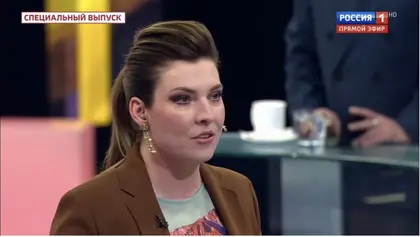A key misunderstanding of Russian disinformation is that its goal is to persuade the reader to believe something. However, most often the intent is rather to cause doubts – not to persuade.
The Kremlin’s use of fake news is legendary, and recent stories peddled by Moscow fit into a long legacy of Russian disinformation. Typically, this is done through a cycle of coaxing a “useful idiot” (someone not connected to the Kremlin, for instance, a Ukrainian) to publish a rumor that is useful to the Kremlin. After the information has been “washed” (“surfaced” in Soviet-parlance) via this non-Kremlin source, its ties to the Kremlin are no longer apparent. Thereafter, Kremlin spin doctors can run the story, citing the original story peddled by the useful-idiot, and the public does not realize the real origins of the Kremlin news.
JOIN US ON TELEGRAM
Follow our coverage of the war on the @Kyivpost_official.
Another tactic, often seen recently, is for Russia to simply repeat seemingly outlandish narratives hoping to sow confusion in the public and to cause people to doubt official sources. Such can be seen in the days and hours before the invasion of Ukraine when Russia repeated that it had no plans “whatsoever” to attack Ukraine, which led many Ukraine residents to not take further precautions, hoping that the tense situation would soon blow over.
During Russia’s disinformation on the origins of the war in Ukraine, Moscow’s narrative that its actions were defensive has been consistent, but what Russia was defending has changed often. Russia has maintained claims that it sought to liberate the people of Ukraine from “Nazis” of the Zelensky Government; or that the Ukrainians were “genociding” the Russian-speaking people of Ukraine, especially those in Donbas; or that NATO was threatening Russia by planning to soon bring Ukraine into the fold; or that Ukraine was seeking to create biological or nuclear weapons; and other easily-debunked tales of Russia taking “defensive” action in invading Ukraine.
Darius Jurgelevicius, an international law expert who served as a Lithuanian diplomat and Deputy Director of their intelligence service, agrees that those who know Ukraine could readily point out that a country governed by a Jewish president, who won 73% of votes in the second round, is hardly a bastion of Nazi sympathy. Likewise, despite more than two decades in NATO, none of the Baltic States, all of which border Russian territory, have been outfitted with nuclear weapons. Moreover, there is no need: The US has nuclear submarines patrolling the North Sea, making the use of Ukraine an unnecessary staging ground for nuclear weapons.
However, that is not the point. “Moscow understands that simply attacking a country out of logic that is unintelligible to people in the West complicates matters for themselves. Thus, the Kremlin is looking for ways to legitimize their military intervention. Though you do not believe what Russian TV says, does not mean that millions of others do not find it believable” says Jurgelevicius.
Some in the West, as soon as they hear that a foreign government is backed by “Nazis” or is “genociding” its minority population, have a knee-jerk reaction of immediately backing the opposing government, in this case Russia.
Jurgelevicius says that “Russia has needed to find a casus belli. Remember: the Russians have been claiming that the Ukrainians are committing genocide against the Russian speakers of Donbas and that the Ukrainians wished to ‘wipe Donbas off the face of the earth,” which the Kremlin hopes will “muddy the waters” as to who the “good guy” vs “bad guy” is in the current conflict.
Andrew Fink, an expert on Russian disinformation, says that there are several goals. “One is that the Russians are trying to get a headline and activate radicals. The purpose is not to convince normal people, but to grab a headline before normal people. Also, there are activists – such as wildly pro-Russian people in the West who might believe what Moscow is saying.”
We also must remember who the target is for any product of disinformation, says Fink. “You must think of it within the targeted audience’s frame of reference: though it seems crazy to us, this type of disinformation follows a long lineage of Soviet propaganda. If someone has spent their whole life hearing these myths – they’re very susceptible to believing them,” he explains.
In fact, recent polling in Russia shows public support for the invasion of Ukraine exceeds 65% – evidence that even the most bizarre disinformation has a “buyer” who may be “in the market” to hear it.
You can also highlight the text and press Ctrl + Enter



